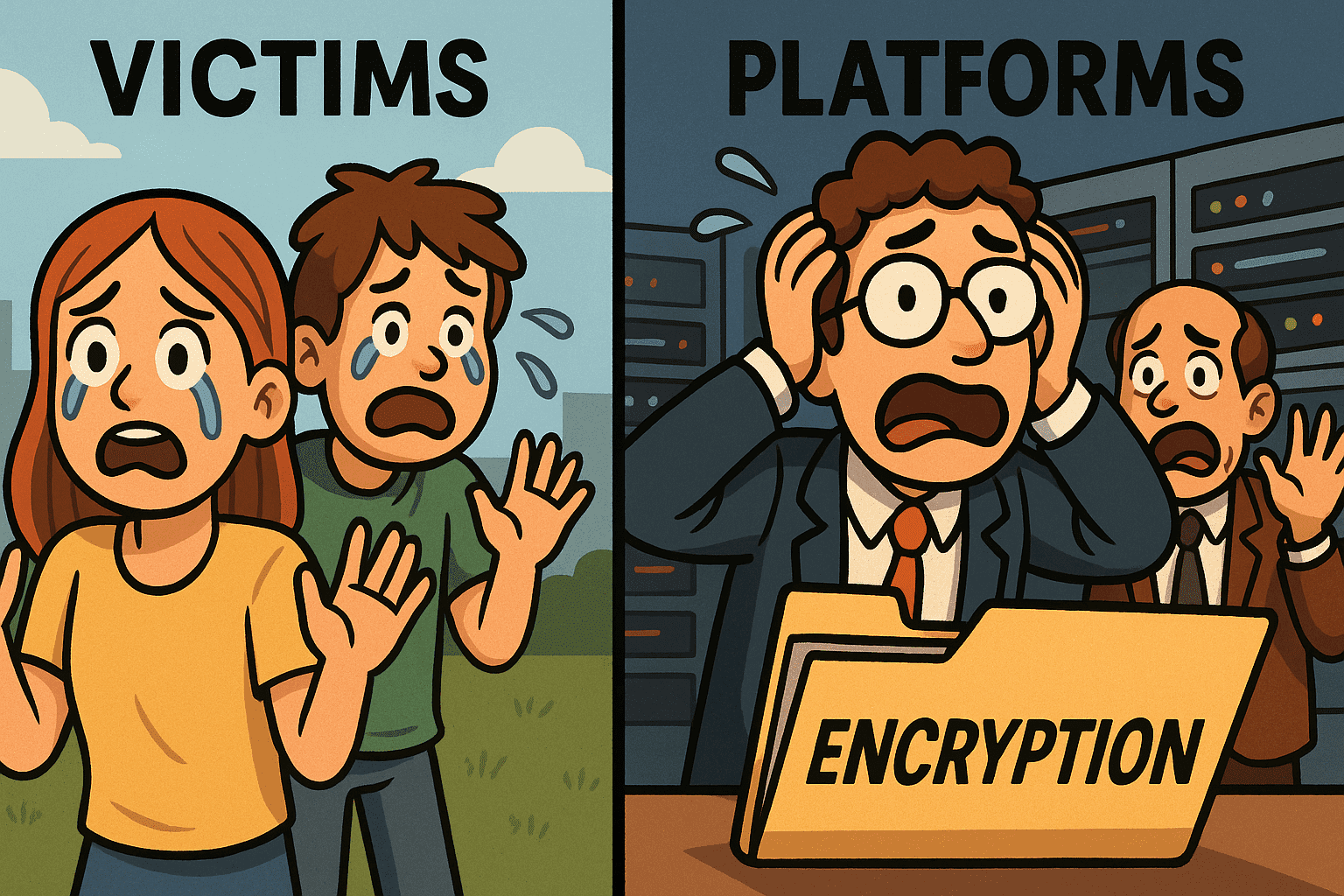 A bill designed to curb the spread of non-consensual intimate imagery (NCII), whether real or AI-generated, is on the brink of becoming law. Known as the Take It Down Act, the legislation commands online platforms to delete such material within 48 hours of being notified by victims. It’s expected to clear the House of Representatives and head swiftly to the White House, where President Donald Trump has pledged to sign it into law, aligning with First Lady Melania Trump’s strong support.
A bill designed to curb the spread of non-consensual intimate imagery (NCII), whether real or AI-generated, is on the brink of becoming law. Known as the Take It Down Act, the legislation commands online platforms to delete such material within 48 hours of being notified by victims. It’s expected to clear the House of Representatives and head swiftly to the White House, where President Donald Trump has pledged to sign it into law, aligning with First Lady Melania Trump’s strong support.
Backed by survivors of digital abuse—many of them minors—the law has stirred intense emotion and urgency on Capitol Hill. Their advocacy spotlighted the devastating impact of fake sexual content and revenge porn, which can proliferate across the internet in minutes, leaving permanent scars on victims.
However, as the bill hurtles toward final approval, critics are sounding alarms about unintended consequences. Digital rights organizations like the Electronic Frontier Foundation (EFF) argue that the bill is overly broad, vague in its wording, and could set dangerous precedents for censorship and surveillance.
Privacy on the Chopping Block?
Under the current draft, platforms must act quickly—or face potential legal exposure. That’s part of the problem, according to EFF. With such a narrow timeframe to respond, many platforms are expected to err on the side of caution by preemptively removing content that may not qualify as NCII. More concerning is the law’s failure to clearly exempt encrypted communication services, a loophole privacy experts believe could eventually lead to pressure on platforms to abandon end-to-end encryption altogether.
In effect, platforms could become unable to guarantee the privacy of user messages or files. The risk, privacy groups warn, is that rather than protecting victims, the law might convert private digital spaces into monitored zones.
No Room for Debate
Despite these concerns, lawmakers refused to incorporate proposed amendments meant to address these flaws. The legislative process moved so quickly that observers—including some directly involved in policy discussions—said meaningful feedback was largely sidelined in favor of political optics and speed.
The bill’s rapid momentum is already being viewed as historic in terms of legislative pacing. But legal experts predict the celebration will be short-lived, as constitutional challenges are expected soon after the law takes effect.
Supporters say that if such challenges reveal areas of weakness, revisions can be made. For now, though, the priority is scoring a rare bipartisan win on tech regulation—especially one that resonates with the public’s visceral reaction to deepfake pornography involving minors.
Dueling Interpretations on Encryption
While supporters of the bill insist that fears over encryption are exaggerated, others in the privacy sector strongly disagree. Advocates for the bill argue that the language clearly applies to publicly published content and should not affect private or encrypted communication.
Some legal analysts believe platforms offering messaging, storage, or direct sharing features could still be swept up in the takedown obligations—either due to ambiguity in the law or fear of liability.
That ambiguity is part of what worries digital rights groups most. In their view, lawmakers missed an opportunity to clarify the text and build in protections for services that can’t feasibly monitor private content. Without these exemptions, they warn, companies could be incentivized to remove encryption altogether to avoid compliance issues.
Censorship Risks Remain
There’s also growing concern that the law could be misused. Because platforms may not be able to verify the legitimacy of every claim under such tight deadlines, malicious actors could exploit the system to take down content they simply dislike. Political abuse of the takedown process is a particular fear, especially given recent comments by Trump suggesting he might apply the law selectively against critics.
Legal experts emphasize that existing civil and criminal laws already cover much of what the Take It Down Act seeks to address. Rather than establishing a broad takedown mandate, they argue, Congress should strengthen enforcement of current statutes and create narrowly tailored enhancements where necessary.
The Inevitable Court Battle
While the law appears destined to pass and be signed imminently, its journey is far from over. Lawsuits challenging the constitutionality of the bill—particularly around free speech and privacy—are almost certain. Proponents remain optimistic the courts will uphold the core protections for victims, while opponents hope legal scrutiny will force revisions that better balance safety with civil liberties.
Even as public sentiment clearly supports a crackdown on fake intimate content, experts stress that solutions must be carefully crafted to avoid trampling on free speech or dismantling online privacy in the process. For now, though, momentum is on the bill’s side, and the debate over its long-term implications is just beginning.